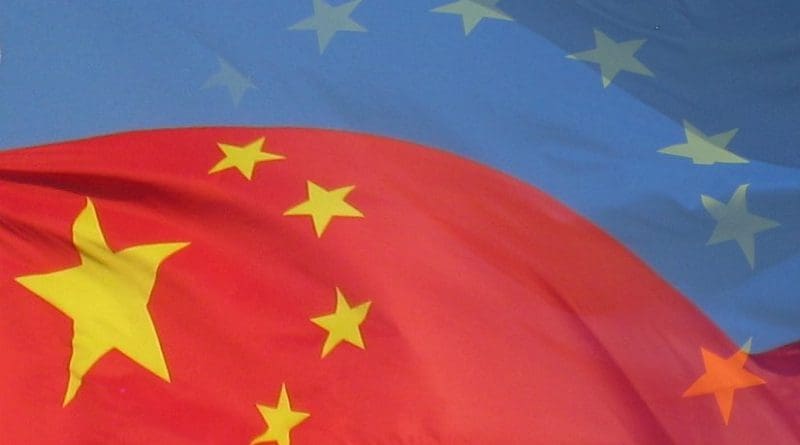Anglo-Dutch Alliance Resists Pressure To Impose Higher Tariffs On China
By EurActiv
By Jorge Valero
(EurActiv) — Backed by Britain, the Dutch presidency of the EU has turned a deaf ear to demands from the European Commission and some member states ― led by France ― to strengthen trade defence instruments against steel dumping from China.
A Dutch presidency spokesperson told EurActiv.com that the country does not contemplate including the issue on the agenda during its six-month term at the EU’s helm.
The presidency argues that the Commission has launched a public consultation to come up with a new proposal on the “lesser duty rule”, the most controversial issue of the trade defence instruments.
Since the Commission is not expected to unveil its proposal before June or July, it would not make sense to try to forge a position among the member states before that date, the spokesperson said.
French-British clash over ‘lesser duty rule’
According to the lesser duty rule, the EU cuts the tariff imposed to the level of the injury caused by the dumping, if it is lower than the level of the dumping.
France, along with other member states, supported the European Commission’s first proposal in 2013 to limit this rule. But a group of countries, led by the United Kingdom, argued that restricting the use of this lesser duty rule would harm other parts of the value chain, with the price ultimately paid by consumers.
In 2014, the Italian presidency failed to reach a consensus, as 14 member states opposed any change to the principle.
Now, the “significant and impending risk of collapse” in the European steel sector, as described in a letter sent to the Commission by seven member states ― including the UK ― has brought new momentum to the debate.
This time, the ball is not in the Commission’s court, France stressed on Monday (29 February).
During the Competitiveness Council on Monday, the French Minister of Economy, Emmanuel Macron, admitted that the limitation of the lesser duty rule, in order to impose higher tariffs, is “problematic” for countries like the UK, “who are nonetheless signatories of the letter sent to the Commission”.
Macron told the ministers that the “only way” to protect the steel sector is to bring this topic to the table of the trade ministers “as soon as possible”. The adoption of the proposal made in 2013 would bring “greater effectiveness” and would set anti-dumping duties at a “credible level”, he said.
The French minister pointed out that the application of the lesser duty rule means that tariffs in the EU are one third of those imposed by the US. Macron also lamented the longer period that it takes for the Commission to impose defence instruments in Europe, one of the main criticisms of the steel sector.
While the procedure can take only two months in the US, the Commission usually needs around nine months to take a decision.
“Today we are neither credible nor reactive,” Macron said.
Commission ‘ready to act’
Elżbieta Bieńkowska, the EU’s Internal Market Commissioner, said the executive was ready to act “as fast as possible according to EU law” to impose tariffs, by cutting the process by two months as requested by the ministers.
But she urged member states to make up their mind on the modernisation of the trade defence instruments and the lesser duty rule.
In response to her comments, the Dutch Minister or Economic Affairs, Henk Kamp, expressed the concerns of the member states over the limitation of the lesser duty rule, as he told journalists that companies that use steel in Europe are also “very important”.
“We have to look at the effect of these measures on the steel processing industry,” he said. Kamp insisted that the wider economy “cannot suffer” in order to protect the steel sector.
Background
The European steel association, Eurofer, says China has a domestic steel overcapacity of around 400 million tonnes, almost three times the total demand in the EU (155 million tonnes). The overcapacity is largely due to persistent state intervention in the Chinese economy.
The Commission proposed in April 2013 to limit the use of the so-called “lesser duty rule” as part of a wider package to modernise the EU’s trade defence instruments. The ‘lesser duty’ rule keeps the additional tariff within the limit of what is strictly necessary to prevent an injury for an EU industry.
Following the Commission’s footsteps, the Parliament adopted its position on the modernisation of the trade defence instruments in April 2014, including the limitation of the lesser duty rule.
When the steel crisis hit Europe, seven member states (Germany, Italy, the United Kingdom, France, Poland, Belgium and Luxembourg) sent a letter to the Commission on 5 February “to use every means available and take strong action” to respond to “unfair trade practices”.
The initiative avoided entering into the details of the lesser duty rule, as this point was the bone of contention in 2014 to modernise the trade defense instruments as a whole.
The letter only said that the reform of these instruments should “further streamline and expedite the procedures, increase transparency, predictability, effectiveness and enforcement for all economic operators in order to enhance the protection of the European steel industry against unfair practices”.

